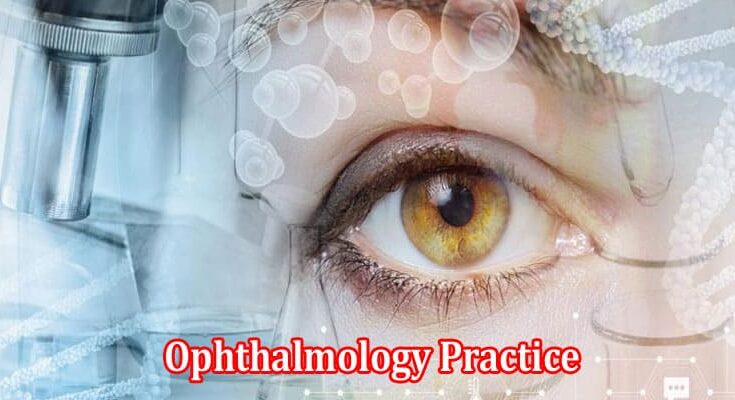Our vision is a precious gift allowing us to experience the world. Through our eyes, we perceive life’s beauty, colors, and details. However, when vision problems arise, they can significantly impact our daily lives and overall well-being. This is where the field of ophthalmology comes into play, offering specialized care and treatments to help individuals regain clear sight and embrace a brighter future.
In this article, we will explore the transformative power of ophthalmology practice in improving lives and enhancing vision health.
Understanding Ophthalmology Practice
Ophthalmology is a branch of medicine dedicated to the diagnosis, treatment, and management of eye diseases, disorders, and conditions. Ophthalmologists are medical doctors who have undergone extensive training and possess expertise in the field of eye care. They utilize their knowledge, skills, and advanced technologies to provide comprehensive eye care services to patients of all ages. From routine check-ups to sophisticated surgical treatments, ophthalmologists have the skills and experience to diagnose and treat various vision disorders.
Diagnosing Eye Conditions
One of the primary roles of an ophthalmologist is to diagnose various eye conditions and disorders. Through comprehensive eye examinations, including visual acuity tests, retinal evaluations, and other specialized tests, ophthalmologists can accurately identify the underlying causes of vision problems. This diagnostic process is crucial in developing personalized treatment plans for patients.
Treating Eye Conditions
Once an eye condition is accurately diagnosed, the ophthalmologist will develop a treatment plan to meet the patient’s needs. Treatment may include one or more of the following options: prescription medications, lifestyle modifications, corrective eyewear, or even surgery.
Prescription medications are used to treat various eye conditions, such as glaucoma, macular degeneration, and allergies. Lifestyle modifications such as wearing sunglasses or limiting screen time may also be recommended. The use of corrective eyewear is often prescribed for nearsightedness and farsightedness. In cases where surgery is necessary, state-of-the-art procedures, such as LASIK and cataract removal, are performed by the best laser eye surgeon.
Specialized Areas in Ophthalmology
Within the field of ophthalmology, there are specialized areas that focus on specific eye conditions and treatments.
- Pediatric ophthalmology addresses children’s unique eye care needs, ensuring their vision develops optimally.
- Retina specialists specialize in diagnosing and managing retinal diseases, including age-related macular degeneration and diabetic retinopathy.
- Glaucoma specialists concentrate on diagnosing, treating, and managing glaucoma, a condition characterized by increased intraocular pressure.
- Cornea specialists deal with corneal disorders and perform corneal transplant surgeries.
- Oculoplastics specialists specialize in the reconstruction and aesthetic enhancement of the structures around the eyes.
Innovations in Ophthalmology
The field of ophthalmology is constantly evolving, thanks to advancements in surgical techniques, diagnostic tools, and treatment options. Minimally invasive surgeries, such as laser-assisted procedures, have revolutionized the field and reduced patient recovery times. Emerging treatments, such as gene therapy and stem cell therapy, hold promise for addressing previously untreatable eye conditions.
Furthermore, integrating artificial intelligence and digital solutions has enhanced diagnostic accuracy and personalized treatment planning. The latest technologies allow ophthalmologists to offer patients more precise and efficient care.
Enhancing Patient Experience
Ophthalmology practice is centered around providing exceptional care and improving the patient experience. Ophthalmologists strive to create a supportive and comfortable environment for their patients, offering clear communication, education about eye health, and addressing any concerns or questions.
Ophthalmologists also use the best practice management software to streamline workflows, reduce paperwork, and maximize efficiency. This allows them to provide timely care and ensure that all patient needs are met in a timely manner.
Additionally, supportive services, such as patient resources, support groups, and access to low-vision aids, contribute to a holistic approach to patient care.
Conclusion
Now that you have a better understanding of ophthalmology practice, it is clear that these dedicated professionals play an essential role in helping individuals maintain their vision health. Through comprehensive diagnostics, personalized treatments, and ongoing care, ophthalmologists help patients see the world clearly and make informed decisions concerning their eye health.
With continuous advancements in the field of ophthalmology, patients can expect to experience improved outcomes and an enhanced quality of life. If you or a loved one are experiencing vision problems, contact an experienced ophthalmologist for specialized care and treatments.

Caroline is a dedicated writer with a passion for keeping readers informed. Specializing in providing the latest news updates and unbiased reviews, she strives to deliver accurate and insightful content. With a keen eye for detail and a commitment to journalistic integrity, Caroline ensures that her readers are always well-informed. Stay tuned for her latest articles to stay up-to-date on current events and trends.




